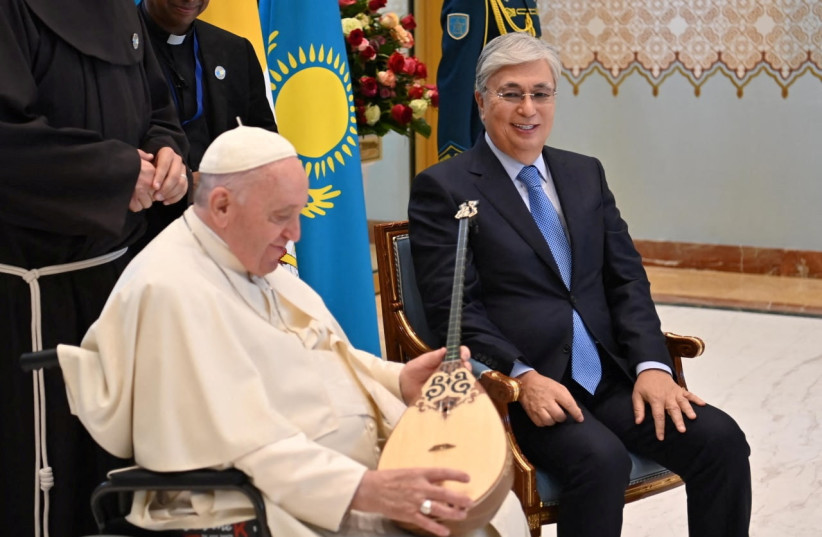Pope Francis on Thursday said it was morally legitimate for nations to supply weapons to Ukraine to help the country defend itself from Russian aggression.
Speaking to reporters aboard a plane returning from a three-day trip to Kazakhstan, Francis also urged Kyiv to be open to eventual dialogue, even though it may "smell" because it would be difficult for the Ukrainian side.
The war in Ukraine, which Russia invaded on Feb. 24, provided the backdrop to the pope's visit to Kazakhstan, where he attended a congress of religious leaders from around the world.
In a 45-minute-long airborne news conference, a reporter asked if it was morally right for countries to send weapons to Ukraine.
"This is a political decision which it can be moral, morally acceptable, if it is done under conditions of morality," Francis said.

Pope invokes Catholic 'Just War' principles
He expounded on the Roman Catholic Church's "Just War" principles, which allow for the proportional use of deadly weapons for self-defense against an aggressor nation.
"Self-defense is not only licit but also an expression of love for the homeland. Someone who does not defend oneself, who does not defend something, does not love it. Those who defend (something) love it,"
Pope Francis
"Self-defense is not only licit but also an expression of love for the homeland. Someone who does not defend oneself, who does not defend something, does not love it. Those who defend (something) love it," he said.
Explaining the difference between when it is moral or immoral to supply weapons to another country, Francis said:
"It can be immoral if the intention is provoking more war, or to sell arms or dump arms that (a country) no longer needs. The motivation is what in large part qualifies the morality of this action," he said.
The pope, who for the second time on an international trip sat through the news conference instead of standing because of a lingering knee ailment, was asked whether Ukraine should negotiate with the country that invaded it and if there was a "red line" Ukraine should draw, depending on Russian activities, after which it could refuse to negotiate.
"It is always difficult to understand dialog with countries that have started a war ... it is difficult but it should not be discarded," he said.
"I would not exclude dialog with any power that is at war, even if it is with the aggressor. ... Sometimes you have to carry out dialog like this. It smells but it must be done," he said.
The pope used the Italian word "puzza" (smell or stink), colloquially equivalent to the English "holding your nose" to describe doing something one would prefer not to do.
"It (dialog) is always a step forward, with an outstretched hand, always. Because otherwise, we close the only reasonable door to peace," Francis said.
"Sometimes they (the aggressor) do not accept dialogue. What a pity. But dialog should always be carried out, or at least offered. And this does good to those who offer it," he said.
